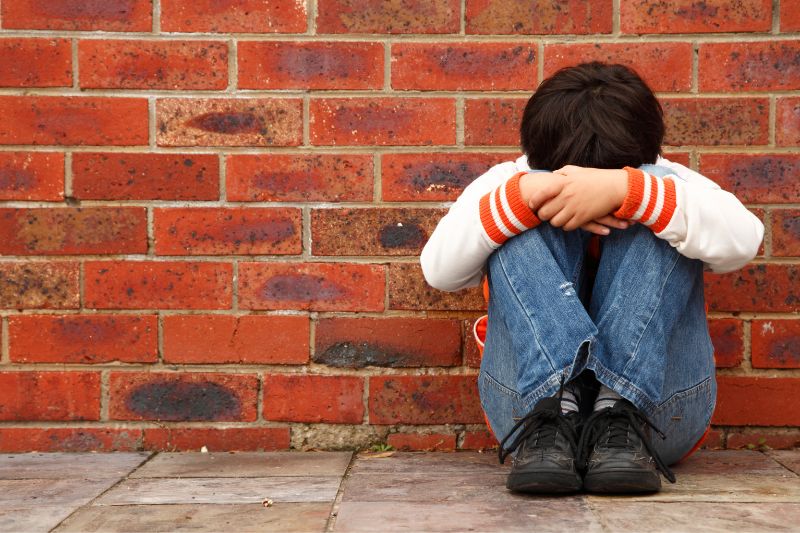Ask Dr. Saline: Teaching kids with ADHD to respond to bullying
 Dear Dr. Saline, My 11 year old son has ADHD and can be a bit clumsy. He’s been teased by classmates for both of these things. In elementary school, his teachers always stepped in to help. But next year he’ll enter middle school and will need to take on more responsibility for himself. My worry is that he’ll be teased and bullied more (I hear middle-schoolers can be quite mean) and I want to prepare him well. What’s your advice for helping kids with ADHD stand up to bullies and stay resilient through difficult situations? -Monica
Dear Dr. Saline, My 11 year old son has ADHD and can be a bit clumsy. He’s been teased by classmates for both of these things. In elementary school, his teachers always stepped in to help. But next year he’ll enter middle school and will need to take on more responsibility for himself. My worry is that he’ll be teased and bullied more (I hear middle-schoolers can be quite mean) and I want to prepare him well. What’s your advice for helping kids with ADHD stand up to bullies and stay resilient through difficult situations? -Monica
From Dr. Saline
Dear Monica, This is such an important question for many families and I’m so glad you brought this up. Sadly, many neurodivergent kids will deal with teasing and bullying in and outside of school. Sometimes they are on the receiving end of a bully’s taunts. Other times, they may lash out and become the aggressor themselves. Impulse control, emotional regulation, and difficulties with social interactions can impact their behavior in unpredictable ways. In order to respond to bullying effectively, kids with ADHD benefit from working on what I call “The 3 R’s”: recognition, response, and resilience.
Recognition
Help your son recognize when bullying behavior occurs, whether he’s the target, a bystander or the aggressor. Physical aggression, verbal abuse, and relational aggression (like spreading rumors, organized social exclusion, or “ganging up” on someone) are all types of bullying which are extremely problematic for everyone involved. Bystanders empower kids who taunt others in an effort to avoid becoming the target. This is why it’s so important to break down bullying with your son so he understands its different components.  Although bullying can occur in person, cyber-bullying is most common. Many kids get their first cell phones in middle school and haven’t developed the maturity or social skills to use them appropriately. Take the time to discuss online safety and responsible phone use. Create a family digital policy that everybody signs. Explain the ‘What Would Grandma Say’ rule: If you wouldn’t say it to your grandmother, then don’t send it as a text, Snap or Discord post. It’s worth mentioning that sometimes kids who engage in cyberbullying have been on the receiving end of hostile, mean and critical social media strings. They may think that repeating these behaviors will make them more popular or finally get back at those kids who have hurt them. These choices often backfire.
Although bullying can occur in person, cyber-bullying is most common. Many kids get their first cell phones in middle school and haven’t developed the maturity or social skills to use them appropriately. Take the time to discuss online safety and responsible phone use. Create a family digital policy that everybody signs. Explain the ‘What Would Grandma Say’ rule: If you wouldn’t say it to your grandmother, then don’t send it as a text, Snap or Discord post. It’s worth mentioning that sometimes kids who engage in cyberbullying have been on the receiving end of hostile, mean and critical social media strings. They may think that repeating these behaviors will make them more popular or finally get back at those kids who have hurt them. These choices often backfire.
Response
 If your child or teen has been involved in any type of bullying, as either the victim, the aggressor or the bystander, we want them to learn how to respond effectively. What are two phrases that he can keep in his back pocket for those uncomfortable moments when people are picking on him? How can he manage his anger or hurt in the moment? Help your son practice what he may say in response to taunts and what he can do to de-escalate. Create an action plan that will help him navigate difficult situations. He needs a strategy of what to do, where to go and how to act. Consider trying some role-plays at home so he can practice these skills. Let him know that you are here to listen as his ally, not to get other people ‘in trouble’. Many neurodivergent kids don’t report bullying incidents to adults because they are afraid of what will happen. Your first response is compassion: offering caring support to your distressed child. Stay calm and be there for him so you can figure out what to do together. This way, he’ll come to you again in the future. If you aren’t sure how to respond or you’re angry about what’s going on, thank him for sharing with you and ask for some time to think about things. Settle yourself before doing anything. Bullying is equally upsetting for kids and their parents. If you are uncertain about what to do, seek advice from your partner, good friends, therapist or coach who can keep this information confidential. Then, when you are ready, circle back to a conversation with your son and discuss your action plans.
If your child or teen has been involved in any type of bullying, as either the victim, the aggressor or the bystander, we want them to learn how to respond effectively. What are two phrases that he can keep in his back pocket for those uncomfortable moments when people are picking on him? How can he manage his anger or hurt in the moment? Help your son practice what he may say in response to taunts and what he can do to de-escalate. Create an action plan that will help him navigate difficult situations. He needs a strategy of what to do, where to go and how to act. Consider trying some role-plays at home so he can practice these skills. Let him know that you are here to listen as his ally, not to get other people ‘in trouble’. Many neurodivergent kids don’t report bullying incidents to adults because they are afraid of what will happen. Your first response is compassion: offering caring support to your distressed child. Stay calm and be there for him so you can figure out what to do together. This way, he’ll come to you again in the future. If you aren’t sure how to respond or you’re angry about what’s going on, thank him for sharing with you and ask for some time to think about things. Settle yourself before doing anything. Bullying is equally upsetting for kids and their parents. If you are uncertain about what to do, seek advice from your partner, good friends, therapist or coach who can keep this information confidential. Then, when you are ready, circle back to a conversation with your son and discuss your action plans.
Resilience
 Healthy self-esteem and resilience are two great defenses against bullying. When your son feels good about himself, understands his strengths and pursues his interests, he’s better poised for responding effectively to aggressors and refusing to align with them against somebody else. He’s also less likely to act as a bully. Resilience means being able to bounce back from difficult situations or interactions because you have confidence in your abilities and you know that you possess strengths as well as challenges. Nurture the wonderful qualities of your son by noticing and encouraging him when he cooperates, follows through on a task or helps you with an activity. Continue to work with him on developing close friendships by arranging family get-togethers, sleepovers, or game nights. Most kids need at least two friends: one they can hang out with on some days and another whom they can hang out with on the other days. By knowing he has a few friends to lean on, he will be able to better manage delicate social situations and rebound if he is having peer difficulties. If your son is really struggling socially, I recommend that you reach out to his teachers or guidance counselors who can help him make connections at school. While we may not be able to prevent bullying, understanding why it happens and feeling prepared to respond appropriately will go a long way in helping your son feel more confident in making a successful transition to middle school. For additional sources on bullying prevention, see the links below.
Healthy self-esteem and resilience are two great defenses against bullying. When your son feels good about himself, understands his strengths and pursues his interests, he’s better poised for responding effectively to aggressors and refusing to align with them against somebody else. He’s also less likely to act as a bully. Resilience means being able to bounce back from difficult situations or interactions because you have confidence in your abilities and you know that you possess strengths as well as challenges. Nurture the wonderful qualities of your son by noticing and encouraging him when he cooperates, follows through on a task or helps you with an activity. Continue to work with him on developing close friendships by arranging family get-togethers, sleepovers, or game nights. Most kids need at least two friends: one they can hang out with on some days and another whom they can hang out with on the other days. By knowing he has a few friends to lean on, he will be able to better manage delicate social situations and rebound if he is having peer difficulties. If your son is really struggling socially, I recommend that you reach out to his teachers or guidance counselors who can help him make connections at school. While we may not be able to prevent bullying, understanding why it happens and feeling prepared to respond appropriately will go a long way in helping your son feel more confident in making a successful transition to middle school. For additional sources on bullying prevention, see the links below.
- STOMP Out Bullying: https://www.stompoutbullying.org/
- StopBullying.gov. | Health Resources and Services Administration (HRSA) https://www.stopbullying.gov/
- PACER’s National Bullying Prevention Center: https://www.pacer.org/BULLYING/
- The Human Rights Campaign: https://www.hrc.org/
Further reading https://www.additudemag.com/stop-bullying-adhd-upstander/
